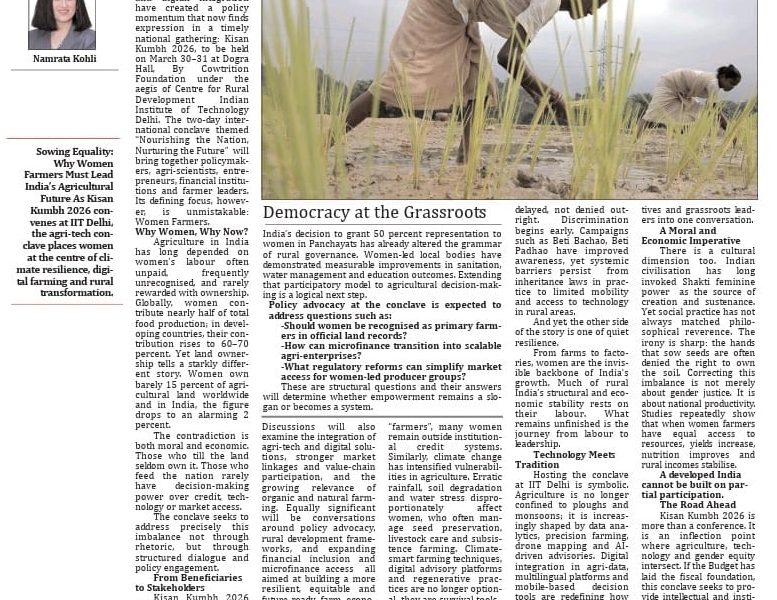When Mahua Moitra, 50, known more for sparring in the House and fiery floor speeches than a fairy-clean image, tied the knot with senior advocate and MP Pinaki Misra, 65, the photo that surfaced was almost cinematic: no drama, no declarations—just two grown-ups, hand in hand, striding into their second innings like it’s nobody’s business (because frankly, it isn’t). In a world obsessed with scandal and spectacle, their quiet wedding in Berlin felt like a mic drop. And while I may not vote for her politics, I’ll give full marks to her personal playbook—graceful, unapologetic, and gloriously grown-up.
Let’s be honest. When a man remarries, it’s “normal.” When a woman does, even today, eyebrows rise. She’s called “bold” at best, “reckless” at worst. But that’s precisely why every second marriage led by choice, not pressure, chips away at that archaic mindset. These are partnerships, not patriarchy. Dialogues, not diktats. It’s less about merging homes and more about merging hearts—with full knowledge of what doesn’t work. There’s a refreshing maturity in second marriages: fewer games, more grounding, lesser expectations.

For generations, second marriages—especially for women—have been cloaked in whispers. Widowhood was synonymous with sacrifice. Divorce with disgrace. A woman who remarried was seen as “lucky” to have found someone again—as though it were charity. But things are changing.
Divorce, widowhood, or simply walking away from a bad first marriage—more Indian women today are embracing the idea of second marriages on their own terms. According to matchmaking specialist from Odisha, Chandan Kumar Nayak, “Earlier… women were expected to focus solely on their children and grand-children. Today, they’re openly expressing their desire for companionship.”
This underscores a significant attitude shift—a move away from stigma toward empowerment and fulfilment in later life – a time when you would need a partner, more than ever before. From Bollywood sets to Parliament benches, women are publicly owning their second innings, eroding the old taboo that “remarriage or second innings = stigma.”

Take the case of actor, eco-activist Dia Mirza who married businessman Vaibhav Rekhi in a minimalist, eco-friendly ceremony in 2021 after ending her first marriage in 2019. Or Renuka Shahane- actor/director who married actor Ashutosh Rana in 2001 after an early marriage and divorce. Or jewelry designer Neelam Kothari who left an emotionally draining first marriage – “They asked me to change everything — even my identity. I finally asked myself, how am I allowing this?” and later married actor Samir Soni in 2011.
Whether embracing second innings in their 30s, 40s, or 50s, these stories prove there’s no expiry date on companionship. These high-profile remarriages give everyday women social proof that starting over is not just possible, but celebrated.
And more women are openly choosing to remarry—not to “settle,” but to soar. These are women who’ve lived, loved, lost—and learned. They come back not naïve, but empowered.
Whether they’re looking for emotional companionship, co-parenting support, or just someone to share Sunday morning chai with—these choices are rooted in clarity, not compulsion

Take the case of Radhika Menon, 44, an HR professional in Bengaluru, who walked out of a toxic marriage after 15 years. “My first marriage drained me. I stayed for my son. But when he turned 18, I chose myself,” she says. She recently married her college friend. “It’s different this time—simpler, quieter, deeper.”
Sumati Rao, 53, a widow from Bhopal, remarried after 12 years. “People said, ‘But you had a good marriage, why start over?’ I said—why not? I miss companionship, laughter. I’m not dead yet.”
These stories are becoming increasingly common—and increasingly public. But why now? Because the woman of today has her own nameplate, her own bank account, and—perhaps most importantly—her own narrative. She’s already battled disgrace, she’s raised a child alone, she’s rebuilt herself. Now, if love reappears, she’s not afraid to let it in. As they say, love doesn’t follow a timeline. Nor does it knock only once. The Second Act is no longer a secret. And for Indian women today, that’s more than enough reason to say yes. Again. After the Storm, they choose spring as the Indian women rewrite the rules of remarriage.
They come with baggage — but also with boundaries. They come with vulnerability—but also with vision. Above all, they come with the courage to choose love—not for society, not for security, but for the self.
Because as Mahua Moitra’s recent walk down the aisle reminds us:
Love doesn’t need a perfect past. It only needs a willing present.




